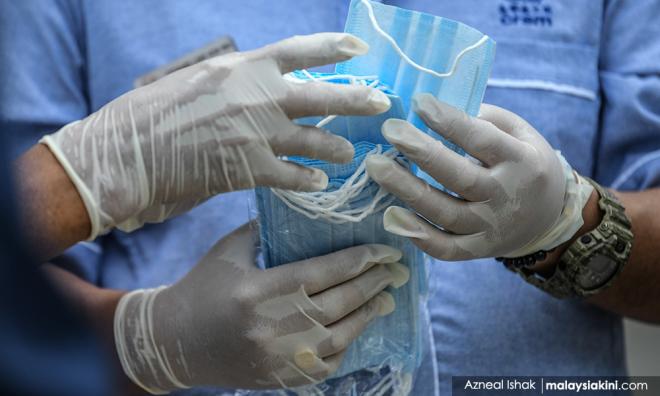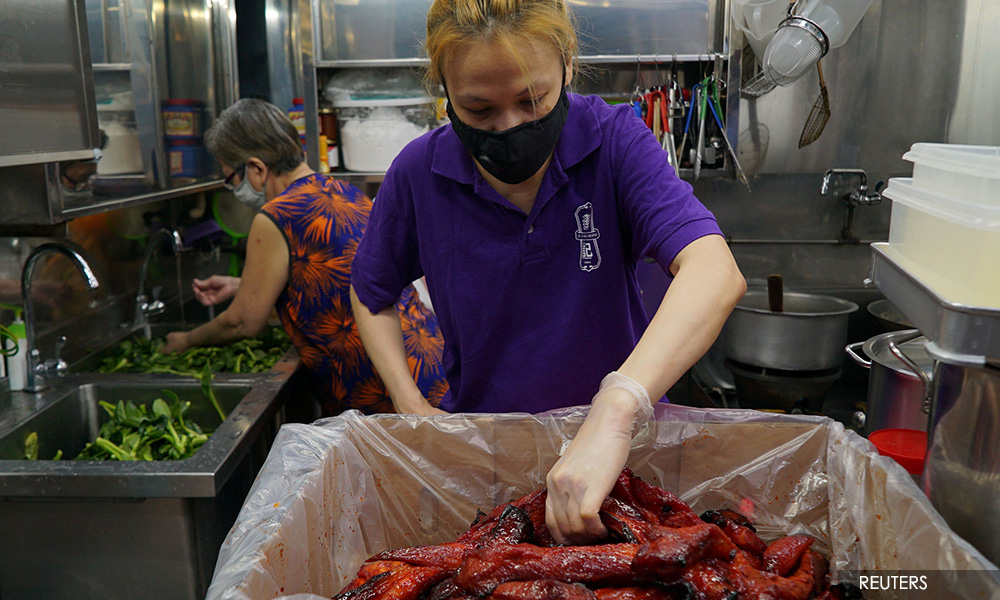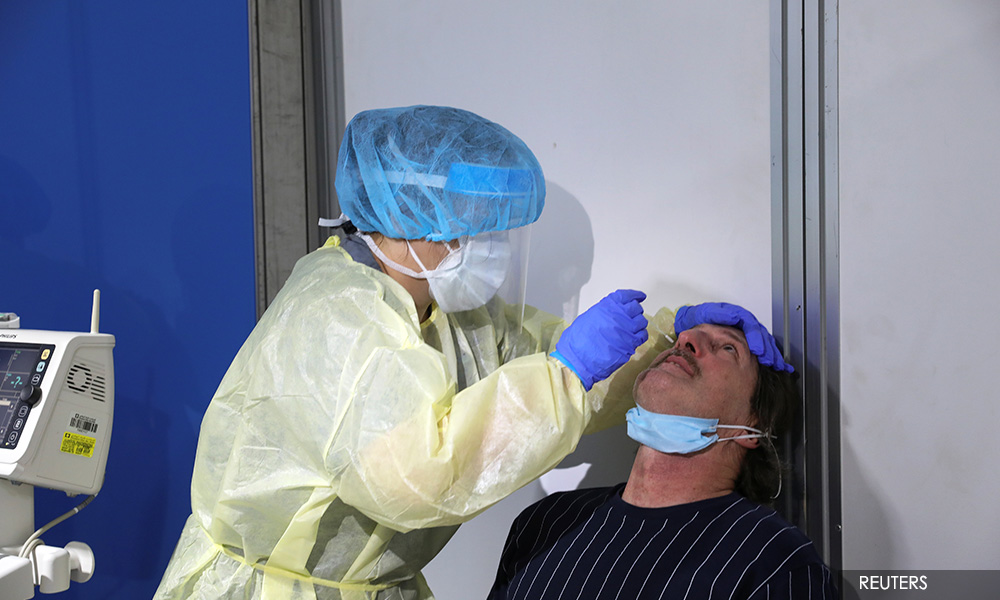
CORONAVIRUS | While face masks and frequent disinfection is widely assumed to prevent Covid-19 transmission, a new study has lent weight to the usefulness of these measures in ‘real world’ situations.
In a paper published in the journal BMJ Global Health yesterday, researchers found that wearing face masks at home before the primary case showed symptoms slashed the risk of secondary infections by 79 percent.
Wearing masks after symptoms appeared had no effect.
They also found homes that are disinfected at least once a day with ethanol or chlorine-based disinfectants reduced the risk of secondary infections by 77 percent. Good hand hygiene without using masks had no effect.
The researchers said while wearing face masks at home was difficult and not entirely necessary, families with high-risk individuals should still wear them.
"We recommend families with members at risk of getting infected...to apply universal face mask use to reduce the risk of household transmission," they said.
High-risk individuals included those who had contact with a Covid-19 patient, medical workers caring for Covid-19 patients, and those with a history of travel to high-risk areas.
They noted that these preventive measures are beneficial even in houses that are small and crowded.
The researchers from medical institutions in China, Australia, and the US checked on 124 families in Beijing where there had been a Covid-19 case.
Through 20-minute phone interviews between Feb 28 and March 8, household members were asked about their knowledge of Covid-19 and hygiene practices in the four days before the primary case started showing symptoms, up to the day the primary case was isolated in hospitals following a positive Covid-19 test result.
Overall, they found 41 out of 124 households (33 percent) reported secondary infections, sickening nearly a quarter of the household members.

Meanwhile, they said households that reported frequent close contact such as by dining around a table or watching TV together have 18 times higher risk of secondary infections.
If the primary case suffered diarrhoea, the risk of secondary infections is four times higher – suggesting possible faecal transmission of the disease.
“Diarrhoea as a symptom in the primary case is also a risk factor for SARS-CoV-2 transmission within families, which highlights the importance of disinfection of bathrooms and toilets, as well as closing the toilet lid when flushing to prevent aerosolization of the virus,” the researchers wrote.
Previously, face masks had been advocated by various health authorities due to their possible benefits in preventing Covid-19 transmission.
Masks are believed to be beneficial because laboratory tests showed that even talking can produce a spray of thousands of tiny droplets that could potentially carry the virus, and the virus could persist in the air for hours. Masks are believed to be able to catch such droplets.
Despite this, evidence supporting the use of face masks outside hospitals and laboratories had been scarce.
A review of all available data published on April 6 was inconclusive – finding modest benefit at best in studies beset with methodological problems.
It is still unclear what amount of virus it takes to start an infection, though prolonged contact with a Covid-19 patient is a known risk factor.
Meanwhile, the latest study builds on previous reports that Covid-19 patients are most infectious before their symptoms begin to show.
Nevertheless, the new study is not without its problems.
“This study is not robust science, as it has several limitations in the conception and in the statistical analysis,” said University College London epidemiologist Dr Antonio Lazzarino.
“The main limitation is that it was designed at the family level, rather than at the individual level. This kind of flaw is called an ecological fallacy.
“The authors have not considered the individual risk of being infected with or without masks; they have instead assessed if families with the habit of wearing masks had more or fewer cases of infection, assuming that family members could be infected only by their family case.
“Families who have that habit may have lower chances of infection for reasons that have nothing to do with masks […]
“In conclusion, this study alone is not enough to make recommendations of any kind,” the UK Science Media Centre (SMC-UK) quoted him as saying.

Several other experts lauded the study despite its limitations.
Tsinghua University School of Medicine researcher Babak Javid noted that Beijing had relatively few Covid-19 cases. Additionally, because of how its residents responded to the outbreak, most Covid-19 infections in the city only occurred within households.
“(This makes a) study of household transmission in this setting extremely useful, since it was very unlikely that transmission occurred outside of the household in January and February 2020,” Javid told the SMC-UK.
He noted that the study also strongly suggests Covid-19 is spread through respiratory droplets rather than aerosols, since isolating the primary case even within the household substantially reduced the risk of secondary infections.
International Scientific Forum on Home Hygiene chairperson Sally Bloomfield said although self-report studies could be biased by the respondent's ability to remember past events, the new study has the advantage of asking respondents about a specific period in time.
“The study will be very useful for persuading people that social distancing and strict hygiene in homes can really work to reduce the risk of transmission to household members but I think it could be very difficult to persuade families to wear masks in their own homes.
“The most difficult thing will be to get them to adopt mask-wear and social distancing when there is no evidence that any of the members of the household might be infectious, least of all, the idea that ‘it could be you’,” she reportedly told the SMC-UK.
Oxford University professor Trish Greenhalgh said the study offers “relatively weak evidence” to support the widespread wearing of masks to prevent Covid-19 transmission within households.
“The findings must also be weighed against the practicalities and the absolute risks involved.
In localities where the incidence of Covid-19 is high, people might feel this measure is worth the inconvenience, especially if there is a vulnerable family member.
“Where the incidence of the disease is low, the balance between benefits and hassles may lean more towards the latter,” she said. - Mkini



No comments:
Post a Comment
Note: Only a member of this blog may post a comment.